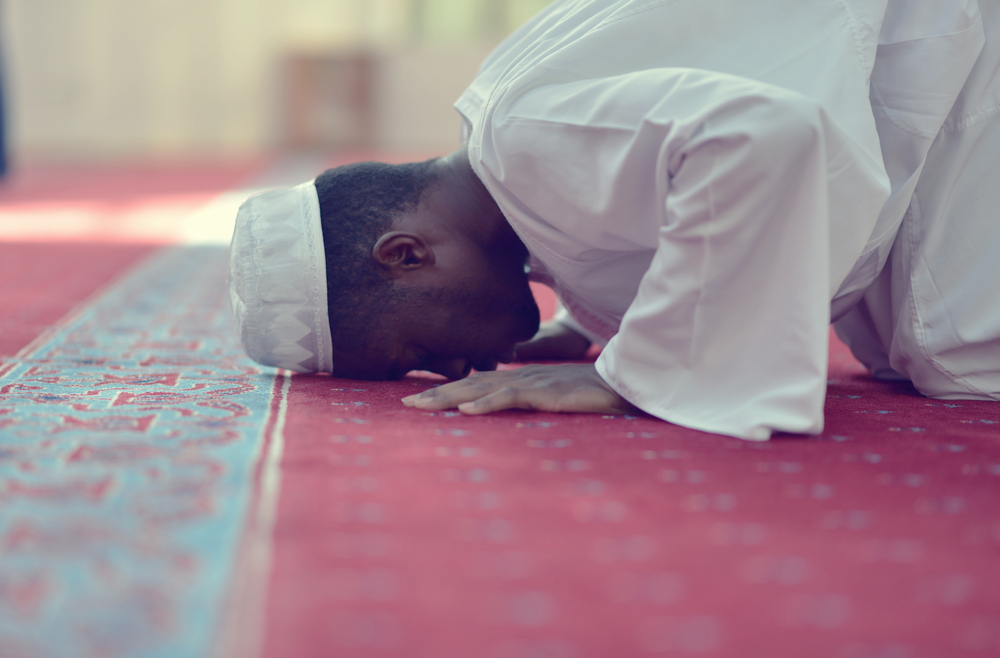The Prayer of Muqarrabun
Shaykh Faraz Rabbani
This article is transcribed by an internal student based on the lecture series “Hope and Closeness: The Way to Allah” by Shaykh Faraz Rabbani. This is the eleventh session of the series.
Significance of Prayer
Since times immemorial, prayer has remained an inevitable part of human history. Rich or poor, strong or weak, literate or illiterate, all feel the urge to pray, and this feeling transcend all boundaries. Considering the inevitably significant place of prayer in Islam, Muslims see prayer as the greatest act of devotion expressing the slavehood of human beings to Allah Most High.
Riding Oneself of Pride
By realizing Allah’s greatness and dependence, man is humbled and rids himself from pride and arrogance. In the prayer, the believer puts the highest part of his body and source of intellect, his head, onto the ground to purify his soul in the presence of Allah Most High. Prayer plays a transformative role in opening the doors for remembrance and seeking closeness to Allah Most High.
Unifying Effect of Prayer
The life of the practicing Muslim is punctuated ever anew by the daily prayers, which break the hold of profane time upon the soul and bring men and women back to a sacred time marked by the meeting with Allah Most High. The sacred time and space point to the center of the Islamic universe, Mecca.
The essence of this conversation is about those who are close to Allah based on the text ‘Sifat al-Salah al-Muqarabeen’ by Imam al-Habib Hasan al-Bahr al-Jifri (d.1273 AH). This text is an invitation to explore the sacred precincts and state of being of those closer to Allah Most High. It is to understand one’s ability to connect with your Lord through prayer.
The Root of the Word Prayer (Salah)
The Arabic word for prayer (Salah) is derived from the Arabic word meaning “connection.” Allah mentioned in the Quran, “successful indeed are the believers, those who humble themselves in their prayer these will be the heirs, who will inherit Al Firdous: They will dwell therein (forever).” [Quran, 23:1-11] Prophet Muhammad (Allah bless him and give him peace) said: “When any one of you stands to pray, he is communicating with his Lord, so let him pay attention to how he speaks to Him.” [Bukhari]
More so, exploring the prerequisites for successful prayer, Shaykh Habib suggests taking a pause and reminding oneself of the inherent dependence of our existence and debt to the One true God before starting the prayer.
Standing Before Allah Most High
Shaykh Habib suggests standing in complete humility and lowliness before the Majesty of the overwhelming Kind. To make sure, we are ready to enter in the presence of Allah and then utter (Allah Akbar) the absolute greatness of Allah Most High. The prelude of prayer is to consider the blessings of the all-encompassing and all-merciful. To remind ourselves of praying out of awe, slavehood, joy, servitude, and remembrance and then express that through our words and actions during the prayer. The key to successful prayer is understanding, realizing, and then uttering the words.
Spiritual Benefits of Prayer
Prayer is a spiritual rejuvenation for the soul, protection against evil acts, and shelter for believers amid the storm of life in this world. Prayer is a sacred mutual space shared by the servant and the Lord and expects the servant to throw everything out of one’s heart and mind before entering the presence of Allah Most High. It is to seek refuge in Allah Most High from the accursed devil and understand that prayer is to enter the sacred space. It is to seek shelter, protection, and assistance of Allah Most High from the evil whispers of Satan.
Essence of Bismillah
Bismillah is an opening invocation to glorify the creator of the heavens and the earth. Ali (Allah be pleased with him ) said, “all the meanings of the Quran are in Surah al-Fatiha, and all meaning of Surah al-Fatiha is in Bismillah al-Rahman al-Rahim.” It is to conceive that everything exists by and through Allah Most High. It is to understand the divine mercy of al-Rahman, who brings everything into existence, and al-Rahim, who sustains everything around us. The utterance of Bismillah al-Rahman al-Rahim is the affirmation of the endless blessings of Allah Most High on his creation.
Conclusion
Considering the significance of beginnings, we conclude this short reminder by diverting our attention to realize that humble beginnings ultimately lead to beautiful endings. Those who spark the beginning of their prayer with the light of faith will see their end illuminated with the greatest blessings of Allah Most High.
Shaykh Faraz Rabbani spent ten years studying with some of the leading scholars of recent times, first in Damascus, and then in Amman, Jordan. His teachers include the foremost theologian of recent times in Damascus, the late Shaykh Adib al-Kallas (may Allah have mercy on him), as well as his student Shaykh Hassan al-Hindi, one of the leading Hanafi fuqaha of the present age. He returned to Canada in 2007, where he founded SeekersGuidance in order to meet the urgent need to spread Islamic knowledge–both online and on the ground–in a reliable, relevant, inspiring, and accessible manner. He is the author of: Absolute Essentials of Islam: Faith, Prayer, and the Path of Salvation According to the Hanafi School (White Thread Press, 2004.) Since 2011, Shaykh Faraz has been named one of the 500 most influential Muslims by the Royal Islamic Strategic Studies Center.
